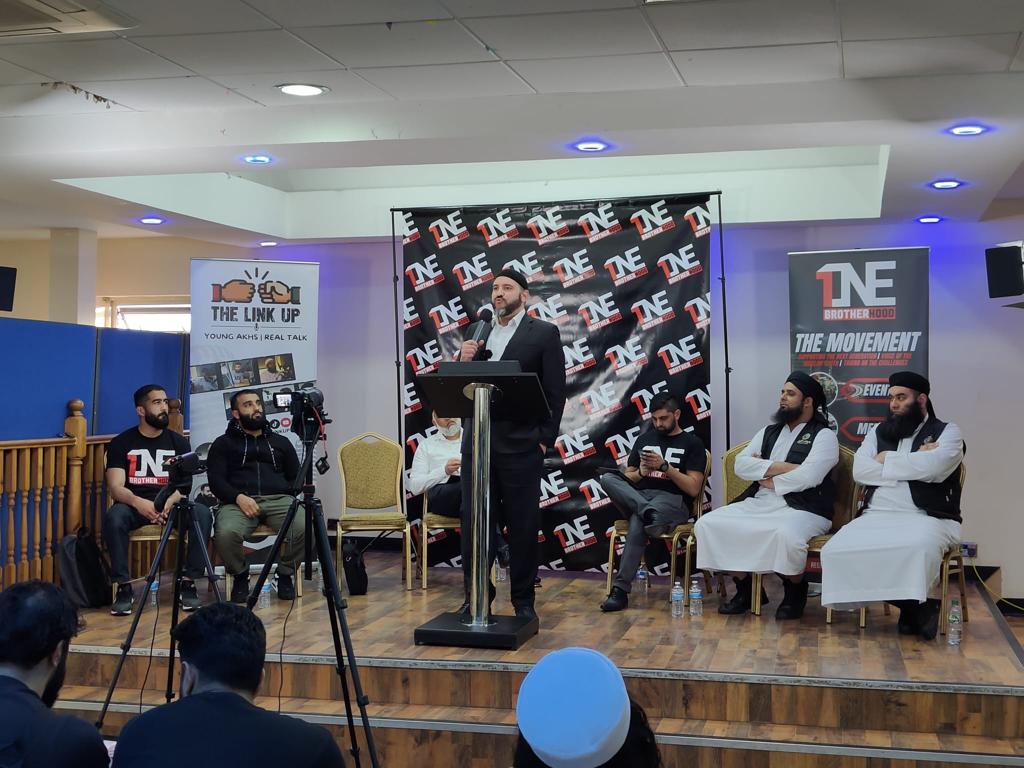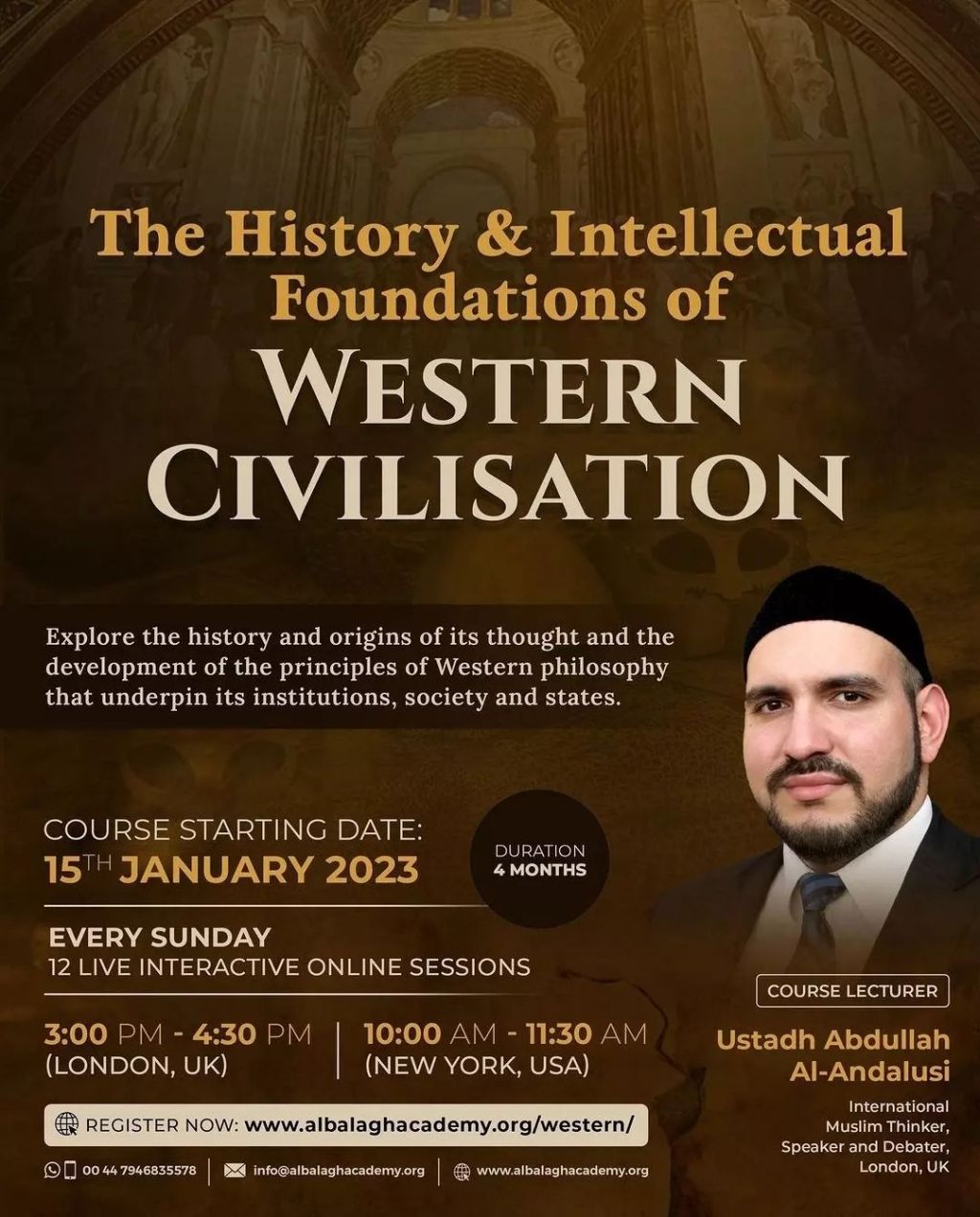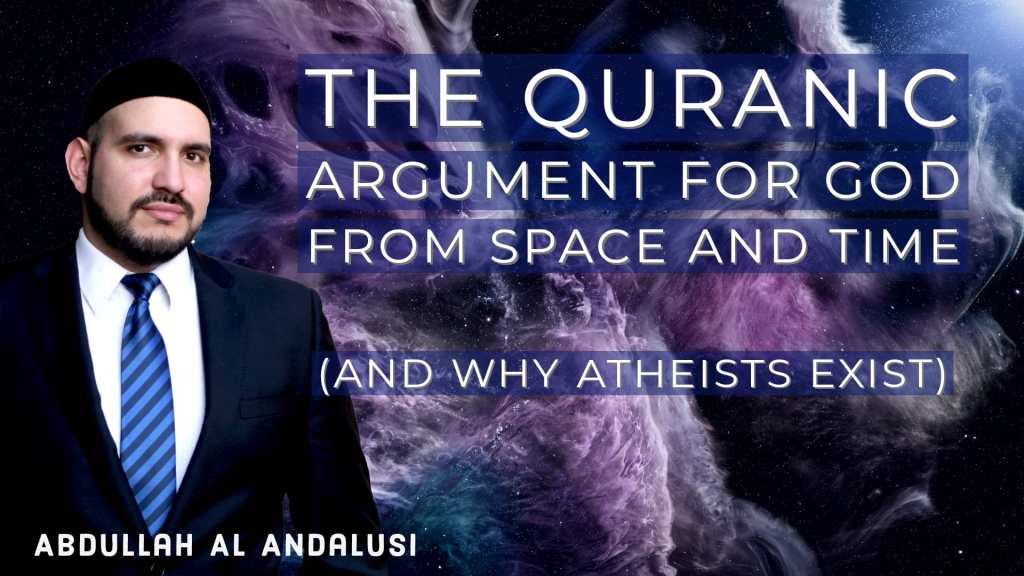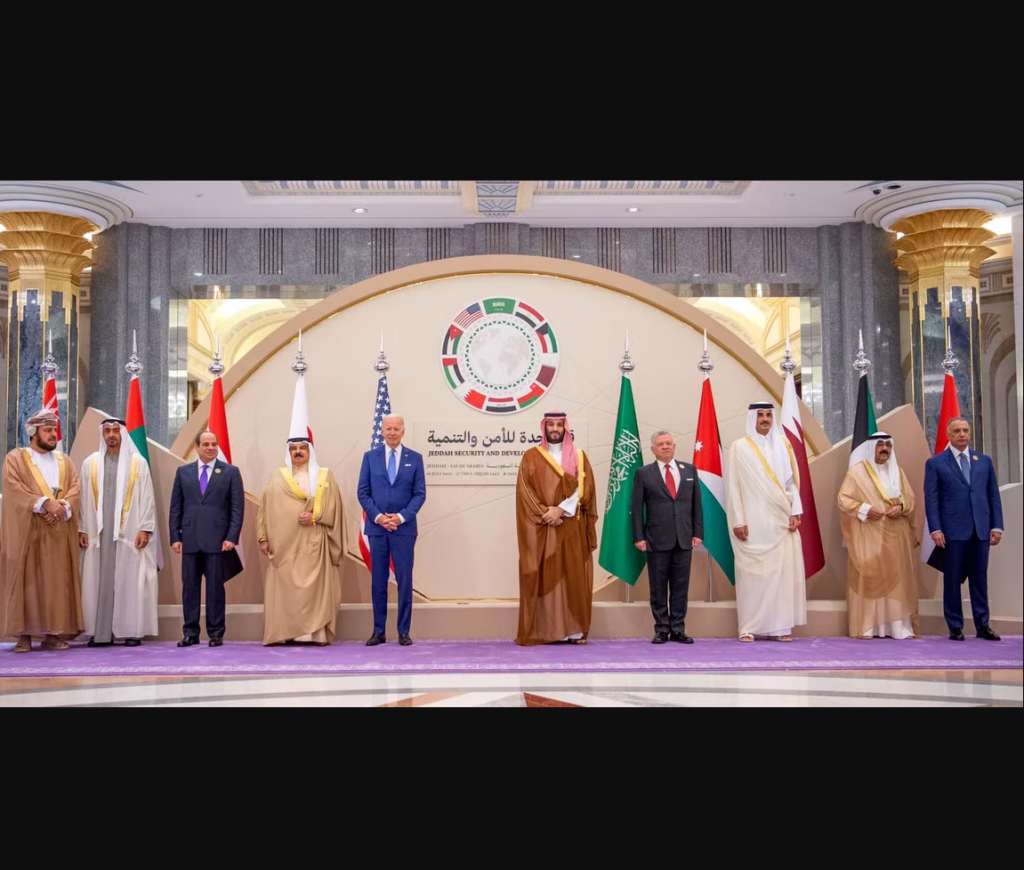The upcoming UK general elections are only a day away, and the usual calls to participate in the election ring out across the Muslim community, like some sort of Adhaan, creating a temporary amnesia about all the previous elections that have gone before and the lack of change they created in the UK government’s trajectory. Many Muslims and the wider population have forgotten how they’ve regretted almost every single government they’ve ever elected, but whom have used the legitimacy given to them by the majority participation, to perpetrate horrendous wars, or oppressive laws, that have caused much misery, suffering and injustice.
In the midst of all the chaos and confusion of the election pageant, we should all step back and ask ourselves some very important questions: Why are all the politicians desperate for people to Vote, even if not for them? Why, if the UK is a ‘Democracy’, do they not let the people have direct referendums on the laws? Why are politicians promises to the people before election not legally obligated? Has Voting ever changed anything? Why are most of the Media outlets, not merely reporting the election, but actively trying to promote (or put in a good light) some parties and denigrating others? Why does the UK call itself a Democracy, if it has a unelected Head of State and Upper House (the House of Lords)? And more significantly, what is the meaning and significance behind us voting in the first place?
The answer to the last question, will answer all the other questions, and to answer that question, we need to see the origins and development of what we call Modern Democracy.
Democracy, as modern concept, was invented in Ancient Athens 2,500 years ago. It allowed all the citizens to directly vote on laws, and (all senior citizens) to judge criminals cases. Government officials were appointed by random lottery to rule for one year. The system caused a lot of chaos, bad mistakes and injustice, until it collapsed due to its policies.
The Roman Republic practiced Republicanism, where the people had limited powers to directly make laws, but had to vote for some officials to make and execute the laws on their behalf. This system collapsed into a Dictatorship (The Roman Empire).
The majority of Ancient Greek philosophers, from Socrates, Plato to Aristotle, actually rejected Democracy, and considered it an ‘unjust constitution’ and ‘deviant system’ (parekbasis), incapable of producing a wise and just government.
[To read a fuller account of the Greek and Roman experiments with Democracy and Republicanism, and the reaction of the Ancient Greek philosophers, please read the The Reality of Secular Liberal Democracy, and the Islamic worldview (part 1)].
European New Beginnings
After the fall of the Western Roman Empire to barbarians, Europe entered its Dark Ages until it encountered the Islamic Civilisation in 8th century, where due to translations of Muslim scientific books and ancient Greek works, it produced a renaissance in thinking and thought that would properly begin in the 12th century. The Europeans consciously refused to learn Islamic philosophy, or take anything from Islamic thinking, as they believed Islam was a pagan ideology – instead, they restricted themselves to only learning the purely material and technological advancements of Islamic civilisation. They did, however, take a keen interest in Ancient Greek philosophy (which in all irony, was from a real ‘pagan’ culture).
The renaissance led to 600 years of advancement in European thought, culture, technology and science in europe – (contrary to the claims of later Secular popular history) all funded and patroned by the Catholic Church!
However, the revival of thinking and philosophy had a consequence unintended by the Catholic Church. Due to the spirit of intellectual enquiry, many people started questioning its teachings and its right to monopolise the interpretation of Christianity. This led to a religious schism between it and the newly arising ‘protestants’.
Furthermore, the discovery that Pagan Greeks, could order and legislate for themselves without Christian revelation, led some philosophers to seek to discover if law was deducible without revelation. The praise of Science as a tool to discover truth in the physical world at the time, led these naive philosophers to misapply it upon the non-physical things of human mind, thought, emotion, purpose and society. This led to the rise of the materialists (who were still Christian, but believed that science could reveal a universal ‘natural law‘ of humans and the meaning of life – without need of revelation).
However, the materialists couldn’t find much purchase within a majority of people who believed that revelation was the sole basis for law, meaning and understanding human purpose. This began to change, when protestants began warring amongst themselves – since they didn’t follow the traditional Catholic interpretation of the Bible, they were ‘free’ to interpret it without the guidance of tradition – and many rebels began to challenge the old-Catholic idea of monarchs having a ‘divine right to rule’ which would prevent anyone rebelling against them.
Out of the resulting wars, the materialists discovered the time was ripe to act, and they began positing that materialism could offer the solution for stable government that theology could not – thus begun what Western historians would later call ‘The Age of Enlightenment’. The English philosopher, Thomas Hobbes, first made the case for a Secular government, and in 1651, his book ‘Leviathan’ received great controversy. However, out of his theories was born the basis for a new worldview – Secular Liberalism.
Birth of Secular Liberal Government
Thomas Hobbes argued that humans all began as ‘individuals’ in nature, and were all ‘perfect liberty’ from society, or the power of anything else. They formed government to protect themselves from each other, by coming together and making an agreement to give up their perfect Liberty – by majority vote – so that they would be represented by a chosen leader and all his actions, they would then become one Will – forming a ‘mortal god’ (the Leviathan).
In 1688, John Locke, took Thomas Hobbes’ ideas further and wrote his seminal ‘Two Treatises of Government’ which declared all individuals to be ‘Absolute Lords’ over themselves and their property. Locke, following Hobbes, advocated that government must be established by the people, to establish and protect their ‘Lordship’ and ‘Absolute Liberty’ as much as is possible. Locke elaborated on government that would be limited by the Materialist ‘natural law’ he had claimed governed the actions of mankind. He claimed that the natural law decrees Man be protected in Life, Liberty and Ownership of Property, unless it isn’t in the ‘public good’, or he has done crime.
Together, Hobbes and Locke proposed that government must come into being by the consent of the sovereign Individuals uniting behind behind it, by majority vote. This government would then be the supreme sovereign over legislation – greater than divine revelation or any other power.
Hobbes and Locke believed that the people could create any form of government they wishes, whether one person (monarchy/president), a group of people (oligarchy/assembly), or the people directly ruling (Athenian Democracy), or any mix in between – as long as the people Vote by a Majority to establish it. The forms of government or rulers, could be permanent and hereditary or limited by life terms, or smaller terms.
Hobbes and Locke elaborated that the significance, meaning and purpose of Voting for rulers, within this new Materialist system. According to Hobbes and Locke, and the other enlightenment thinkers, when people Vote for a ruler or rulers they are affirming the following:
- [You affirm your Supreme Sovereignty] The expression of the ‘Absolute Lordship’ of Individuals and their inherent sovereignty
- [You declare the Government’s Sole Right to Legislate as your delegated Supreme Sovereign] The transfer of this supreme sovereignty to government, elevating it to Supreme Sovereign over all the people by their consent and declaration of their giving their sovereignty upon their delegates to exercise it (i.e. the ruler(s))
- [You affirm the government to be legitimate in form, basis and purpose] Voting confers legitimacy on the system of Government and its form due to point 2.
- [You join your Will together into the One ‘National Will’, that is solely represented and interpreted by the ruler(s)] Voting signifies the people uniting into ‘one Will’, led by the ruler (whether one person, or the official decrees/laws of an elected assembly)
- [You authorise ALL actions by the government, present and future] Voting authorises all the actions of he government, present and future. The people who Vote for government become, as Locke put it pledged to government ‘perpetually and indispensably obliged to be, and remain unalterably a subject to it’
- [You declare the Governments actions to be yours and on your behalf] Due to point 5, all the rulers actions, belong to the people and are considered their actions, and are an expression of their Will, even if they disagree with them after the Election. This is because the people Vote for the ruler giving them delegated power to make all decisions on their behalf. Locke caveated, that as long as the ruler didn’t contradict his ‘natural laws’ that limit this new system, all actions were legitimate, and the people’s Vote would be given with them knowing and accepting this to be the case.
- [If you Vote, you cannot have any moral legitimacy to complain] Due to Point 6, the people have no legal or moral right to complain about the ruler’s actions, as the rulers actions are their own, and therefore they cannot complain about something that originated with themselves, and of whom they are the authors of. People may, however, give advice to the ruler which they are not obligated to follow.
- [You agree to submit to whoever is the Winner of the Vote, as your Ruler] People Voting in the system all agree to abide by the results of the system, even if they’re preferred candidates lose and whatever rulers are selected. This is because the minority who loses the Voted, participated in a system and gave tacit consent to abide by its conclusion. Therefore, the minority Voters are also authors of all the actions of the Ruler or Rulers, who represents all Voters.
- [You give the Government has your express consent to take Tax from you] Voting gives the Rulers consent to tax the people, for Locke argued that no property can be taken away from people without their consent. So Voting consists of the consent to take away property for whatever the Rulers deem ‘the public good’.
- [The agree for the Elected Ruler(s) are elected to Rule over you by their opinion, not yours] The Rulers being made the supreme sovereigns after the election, are not obligated to implement the opinions of the people who voted for them, since their only obligation is to rule on behalf of them, within the limits and purposes of government expressed by Locke’s natural law. In essence, this means that election candidates want your vote, not your opinion.
The principles of these 10 points formed what the Political Philosophy of Secular Liberalism, or Liberalism (for short). Locke believed that this system would help hinder the people from rebellion, by making them believe they had some influence in government.
It is for this reason, that politicians are desperate to get as many people to vote as possible, as voting is – first and foremost – public consent for the continuation of the system and status quo.
However, Locke disagreed with Hobbes in one small matter, Hobbes believed everyone has given consent to the government of their land, as long as they stayed in it. However, Locke believed that if people were living in a state and society after it had been Voted in, and they were either foreigners or were born without ever giving consent – their living there or temporary business in the land made a covenant only to abide by the laws there and they were entitled to the privileges without having to give consent to the government. However, in order to be ‘part of the state’, Locke argued they had to give consent to by participating in the next available Vote, what he called ‘Positive Engagement’. In this way do all subsequent generations give their pledge of submission to their government, and become true and ‘perpetual’ members of their state.
[To read a fuller account of how Hobbes and Locke developed and justified these 10 points in their new political system, please read the The Reality of Secular Liberal Democracy, and the Islamic worldview (part 2)].
The Enlightenment Philosophers Reject Democracy
Between the 17th-18th centuries saw revolutions, some bloodless, most of them bloody, which saw the establishment of Secular governments. While Hobbes and Locke didn’t have a preference for any form of government, the Secular revolutionaries became to consider what kind of government would be best for their new system. The American founding fathers, and English philosophers, like Edmund Burke, considered Democracy prone to Tyranny and rule by unwise government.
“Democracies have ever been spectacles of turbulence and contention… incompatible with personal security or the rights of property.”
—James Madison, Federalist Papers (read more)
The bloody French revolution was taken over by ‘radicals’ who wanted a pure democracy, but it devolved into tyranny. With these lessons in mind, the Western philosophers came to the same conclusion the Greeks had: the people, according to them, simply couldn’t be trusted, and might Vote to remove the property of the rich (the minority faction they were most concerned about).
In all the new Liberal governments, the philosophers and politicians designed a system that would remove the people as far as possible from directly ruling. The Americans (and finally the French) implemented a Republican system, where the people would elect a council of representatives instead – government by a highly ‘sacred’ constitution that could limit the people.
The American founding fathers didn’t even trust the people to direct the president, instead allowing them to only vote for ‘electoral colleges’ who would vote for the president – and the senate being appointed by regional government. The supreme court judges would be appointed by the president, and not the people. English kept a mixed system of Monarchy, Aristocrats and elected lower house representatives.
Liberal philosophers believed that the best place for the people, would be reduced to merely supplying the legitimacy to the ruling system – but that the officials ruling them would best ‘represent their opinions’ by being someone they’re confident in to ‘think for them’:
‘Every elector who voted for him would have done so either because, among all the candidates for Parliament who are favourably known to a certain number of electors, he is the one who best expresses the voter’s own opinions, because he is one of those whose abilities and character the voter most respects, and whom he most willingly trusts to think for him’
[Considerations of Representative Government, John Stuart Mill, 1861]
The US constitution or declaration of Independence, does not refer to the US in anyway as a Democracy, nor did the UK government refer to itself as a Democracy. This happened later on in the early to mid 19th century, where the Republican system became relabeled and referred to as ‘Representative Democracy’, and British philosophers then began adopting the term. In essence, they changed the definition of Democracy in order to label their governments as ‘Democratic’, as some historians believe, in order to placate the rising numbers of people in post-industrial economies, with the illusion of self-government.
Oligarchy of the Elite and the Elected
From the outset, Secular Liberal governments are oligarchies of two parallel structures, an Elite formed from rich property and land owners who historically have led revolutions to protect their property from both absolute Dictators and the poor, and another structure called the Political class, who’s patronage by the Elite (using election campaign money, media or offers for opportunity after their career) ensures their tenures with every election, in return for ensuring the system runs smoothly. The existence of this oligarchy within ‘Representative Democracies’ was deemed by many 19th and 20th century sociologists to be inevitable and impossible to prevent under the Secular Liberal system.
The principles of the Liberal system – Locke’s ‘Natural Law’ – which permits disposing of wealth according to the Individuals ‘liberty’ cannot prohibit interest banking, stock brokering which concentrate wealth, nor can it create substantial redistribution of property from the rich to the poor. However, its requirement for ‘consent’ allows it to enfranchise the poor into the system, by allowing them a vote for representative figureheads.
Elected officials in such a system, are as limited by the system and forced by the structure to constantly pursue permanent interests – preventing concentration of wealth devastating society, by finding sources of income for the state in other countries, to be secured by negotiation or military intervention.
Its for this reason that politicians are very concerned by low voter turnouts, and during the 2015 UK elections are willing to project a large number of party choices to the people, in order to get them re-enfranchised again with the illusion of influence. The system can only have legitimacy if people Vote, without it, the ruler(s) and the existing power structure have no mandate to rule.
Considerations for Muslims
The argument about whether or not to vote in elections is centred around whether Voting is an act of sacrilege against the Absolute Lordship of God, as the Supreme legislator, and whether Voting would ever change anything, represent the ‘Muslim voice’ or help Muslim interests.
These discussions need to be informed by the reality of Modern Secular ‘Democracy’ itself and how it came to be. Likewise, Muslims need to be informed about what the Quran and traditions of the Prophet Muhammed (saaw) and ask themselves what would be the best action Muslims can do as ‘witnesses to Mankind of the truth’?
Does participating in the system I’ve discussed so far, produce witnessing to the truth to mankind or the society around us? Will it produce real justice?
Some Muslims argued that even if a system is unjust, we can participate in it to choose ‘the lesser of two evils’. But how is that different from those who are complicit with corruption? Surely the corruption grows when people resign themselves to it, and count it as ‘wisdom’ that they scrape for themselves what meagre comfortable life they can using it.
The other common argument used is ‘if we don’t vote, then the fascists get into power’. But just take some time to understand that argument – in order for the fascists to come to power requires a large Voting majority, that if it exists would mean the majority of the country was populated by Fascist supporters, in that event, the results of the elections would be the very least of concerns for Muslims.
These and many other arguments, are unfortunately symptomatic of Muslims having long embraced the politics of weakness and the fiqh of powerlessness.
Being witnesses for Justice – The real power
Whether in a dictatorship, communist regime, monarchy or modern ‘Democracy’, there is a common truth, all government is affected by public opinion and power of the public.

Demonstrations, leafleting, lobbying, protesting, civil disobedience, book writing, public speaking, debating and setting good examples have changed far more laws than elections ever have. The rights for women to Vote, the national health service in the UK, Black civil rights in the U.S. and the abolition of Margaret Thatcher’s hated ‘Poll Tax’ (along with her resignation), the end of South African apartheid (and the end of some dictators in the Muslim world) all came about through public opinion, not Voting or elections. If Muslims want to be witnesses to the truth, and fight injustice, then these things are done outside the ballot box.
In the Roman Empire, all citizens were expected to pledge allegiance to the Emperor, as a living god, and the son of the Rome god Jupiter. Christians faced the biggest problem with this, since, as monotheists, they couldn’t recognise the Emperor as ‘the son of Jupiter’ or as a god. However, their loyalty and allegiance was suspected and they were persecuted if they didn’t burn a pinch of incense to the Emperor. Now someone could argue that, the action of burning some incense is not of itself a defiance of monotheism and God. However, it is not the action itself that’s the problem, but the intended significance of the action. It might be quite egregious to a monotheist, especially if the society they live in considers that action to be a rightful act of worship towards a pagan god. The holding firm to their principles by these early peaceful Christian martyrs (the Greek word for ‘witnesses’) won over many Romans to Christianity who were impressed by their commitment to ideals.
Instead of simply blindly following without question, the typical siren calls that go out every election, we should consider Hobbes’ and Locke’s 10 points and ask ourselves, are we willing to affirm them?
“Narrated Abu Musa: Two men from my tribe and I entered upon the Prophet. One of the two men said to the Prophet, “O Allah’s Apostle! Appoint me as a governor,” and so did the second. The Prophet said, “We do not assign the authority of ruling to those who ask for it, nor to those who are keen to have it.” [Bukhari]
‘They want you to compromise with them and then they will compromise with you. And do not obey every worthless habitual swearer [i.e. false promiser]’
(Quran 68:9)
“Whoever recommends and helps a good cause becomes a partner therein: and whoever recommends and helps an evil cause shares in its burden: and Allah hath power over all things.”
(Qur’an 4:85)
‘One day We shall call together all human beings with their Leaders‘
(Quran 17:71)
‘And thus We have made you a community of the middle way, so that you may be witnesses [to the Truth] before all mankind, and the Messenger may be witness [to it] before you’
(Quran 2: 143)
‘O believers, be ever steadfast in standing up, for the sake of God, bearing witness to justice’
(Quran 5: 8)
He merges Night into Day, and he merges Day into Night, and he has subjected the sun and the moon (to his Law): each one runs its course for a term appointed. Such is Allah your Lord: to Him belongs all Dominion. And those whom ye invoke besides Him have not the least power.
(Quran 35:13)







Leave a comment